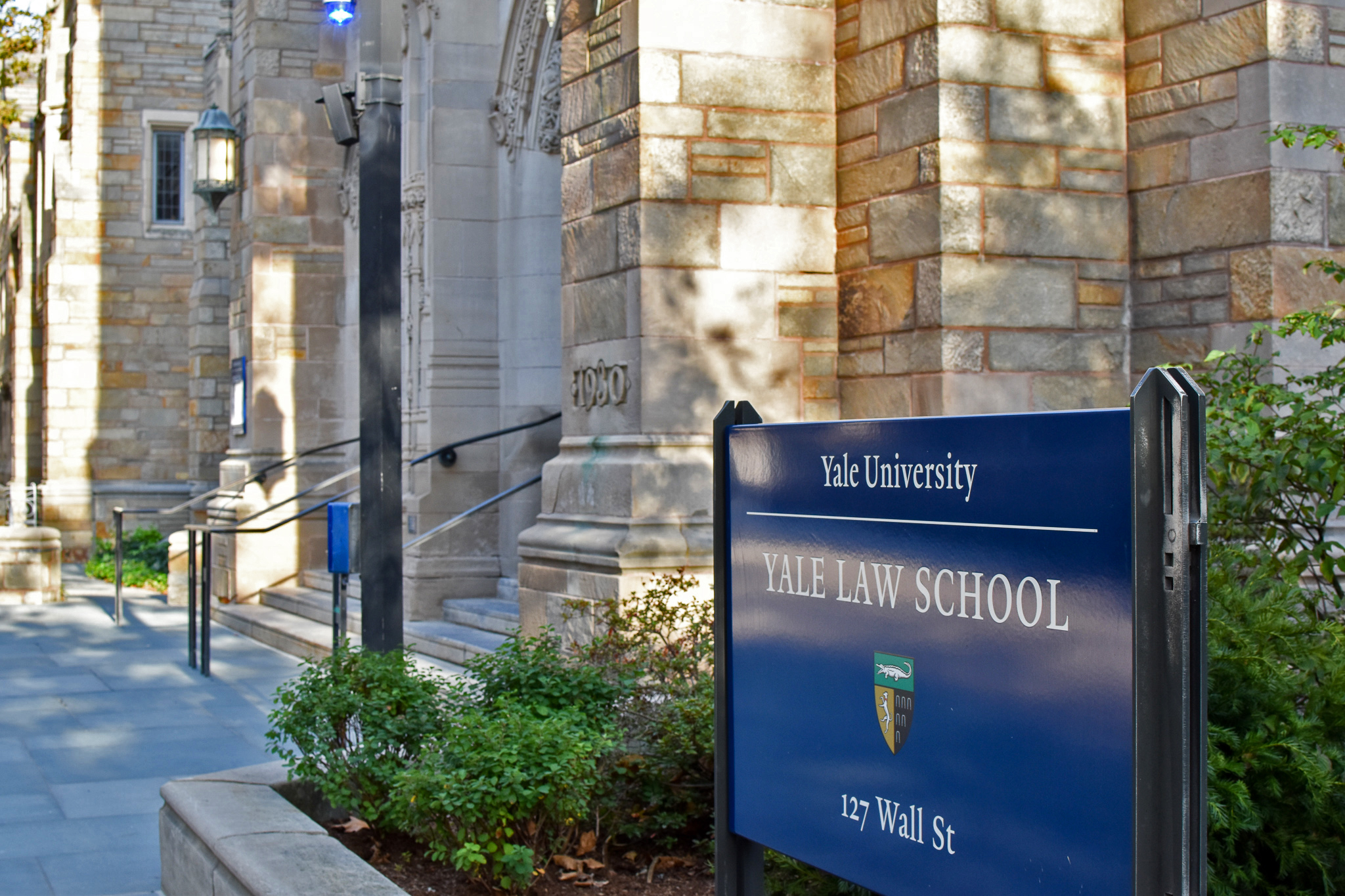Yale Law School’s new Law and Racial Justice Center tackles local issues
The directors of the Law School’s Law and Racial Justice Center speak about one of the aims of the center: expanding accessibility of a law education on a local level.

Karen Lin, Photo Editor
The Yale Law School’s Center for Law and Racial Justice is tackling issues on a local level through its Access to Law School program.
The Access to Law School Program engages New Haven-area students and adults interested in the legal profession. The two-year program is led by current Yale Law School students, and it includes one-on-one mentoring sessions, LSAT coaching and application training so that the fellows can successfully apply and attend law school. The initiative, led by law professor James Forman, Jr. LAW ’92, took its first class of fellows last year. The program is housed within the Center for Law and Racial Justice, which brings together members of the Law School and New Haven community to focus on promoting racial justice.
“We hope that this program will give individual mobility and over time have a collective impact,” Forman said. “My dream is that in the future when you go down to the New Haven courthouse, you will see a more diverse legal community, and a lot of these people will be able to trace their start in the Access to Law Program.”
The Access to Law School Program deals with the notions of individual mobility and community empowerment. It is designed to give first generation students, students of color and immigrant students — “people who have been traditionally excluded or not had full access to law education” — a chance to become a lawyer, Forman said.
One of the 20 inaugural fellows, Akia Callum, praised the program for “nurturing [her] development academically” and for giving her the “additional push and motivation to accomplish [her] legal dreams.”
Since joining the program, her LSAT score has improved by 14 points and she has been accepted to four law schools and waitlisted by three others, she said.
“The one-to-one approach the A2LS program takes with the pairing of current law school mentors, an admissions support mentor, tutoring and Saturday academies advances not only my personal belief of racial equity in increasing the access of students of color to attend law school, but also prepares them for their journey from studying, applying, practicums and next steps after acceptance to law school,” Callum said.
Nina Oishi LAW ’22, one of the teaching fellows at the Center for Law and Racial Justice who has been involved with the Access to Law Program for the past two years, said that the most rewarding part of her time at the center has been being able to work with the fellows.
According to Oishi, many of the fellows have children and some have been involved with the criminal justice system in the past — both of which are traits that Oishi said do not define the fellows.
“They’re brilliant, they work incredibly hard, they’re dedicated to making a difference and they bring a perspective that the legal field really desperately needs,” Oishi said.
Oishi said she wants to work in public interest law and that this work made it clear to her that so many important voices were kept out of the legal profession because of the barriers to legal education.
“Lawyers can’t make change if we continue to shut the gate behind us, and the program works on both a small and larger scale to dismantle that,” Oishi said.
Shariful Khan LAW ’22, one of the program’s advisors, helped Forman found the project and told the News that it feels “validating” that the Law School is taking racial justice seriously.
“It’s empowering to be in a space with other students who also care about, say, civil rights, economic justice or consumer litigation, and who understand the role that race plays in all of those subject-areas,” Khan said.
Khan said that the program has reminded him of how “wonderful” people can be, despite the many challenges that some of the fellows face. Through the program, he said he has a unique ability to work with the fellows — as opposed to, say, a public defender, who can only “try their best [within the confines of] a broken system.”
The center’s inaugural executive director, Kayla Vinson ’11, told the News that she was a public school teacher when she first encountered the intersection of education and the criminal justice system. She soon realized how in her time at Yale College she was taught to develop “individual-focused” leadership skills. Her time as a director of the program made her realize how important it is to “hold a space where leadership is about collaboration.”
The center is developing more projects for the future, including one in which it works with the neighborhoods adjacent to Yale and other members of the New Haven community to support incarcerated men in the New Haven Correctional Center who often get “overlooked and ignored,” Forman said.
Forman told the News that he hopes to build more bridges between Yale and the community surrounding the University. He also said he hopes to extend the conversation to students at Yale College, as well.
“If you’re interested in a place focused on action, community and has a local orientation,” Forman said. “If that speaks to you, then come reach out to us because we want to be a place for you.”
Yale Law School is located at 127 Wall St.







